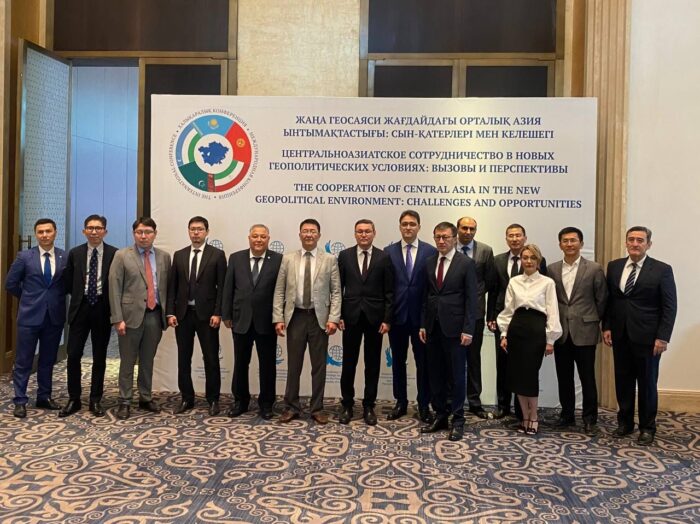NUR-SULTAN – The Kazakhstan Institute for Strategic Studies under the President of Kazakhstan (KazISS) hosted an international conference with the support of the Representative Office of the Konrad Adenauer Foundation dedicated to regional cooperation in new geopolitical conditions on June 29.

Photo credit: Kisi.kz.
The agenda included issues related to water policy, environmental protection, food security, and scientific and cultural interaction.
Kazakhstan’s State Councilor Erlan Karin noted that Central Asian states seek opportunities for closer interaction, which is a positive trend since the region is under the powerful influence of external factors.
“It is essential for the countries to seek and develop its own regional development strategy. In this regard, Kazakhstan’s initiative to adopt the Treaty of Friendship, Good Neighborliness, and Cooperation for the Development of Central Asia in the 21st century is an important document. This document is now being discussed, and we hope that it will be adopted during the forthcoming regular consultative meeting of the leaders of the countries of the region. This will mean that cooperation will reach a new important level,” said Karin.
In his opening remarks, Director of KazISS Yerkіn Tukumov said the geopolitical situation has a direct impact on the economic relations of Central Asian countries. The foreign policy of the Central Asian states should be built on national interests considering “effective points of contact” to ensure regional security, trade, transport, and scientific and cultural interaction.
The scientific and expert communities should also strengthen interaction to address global and regional challenges and develop common approaches.
International terrorism, migration, and food security are issues of immediate importance. The humanitarian situation in Afghanistan, the inflation rate in the EU and Central Asia region as well as climate change are among other pressing challenges.
Tukumov proposed to create a regional platform to find solutions for a balance between economic development and environmental conservation as water management issues are vital for the region.
Rustam Asizbayev, the Director of Kyrgyzstan’s National Institute for Strategic Studies, said that the joint efforts are necessary to ensure national and food security. Diversification of transit routes is also important.
It is also necessary to develop industrial cooperation projects that are drivers of economic growth, said Deputy Director of the Institute for Strategic and Interregional Studies under the President of Uzbekistan Bobur Usmanov, who focused on expanding economic cooperation. He proposed to continue developing international and regional trade, logistics, and industrial projects.
During the session, the experts also spoke about the prospects for regional cooperation, the role of Central Asian transport corridors in the new conditions, and food security.

